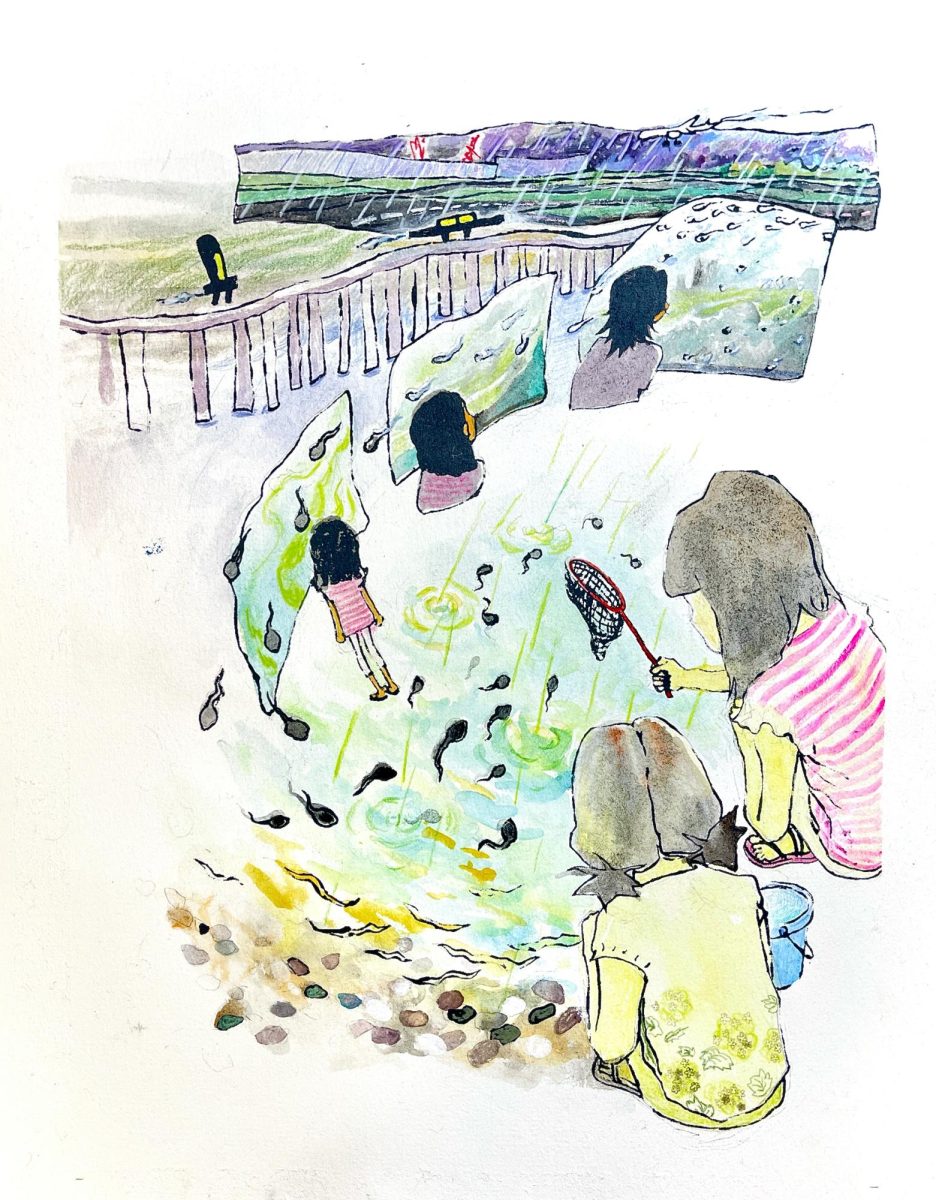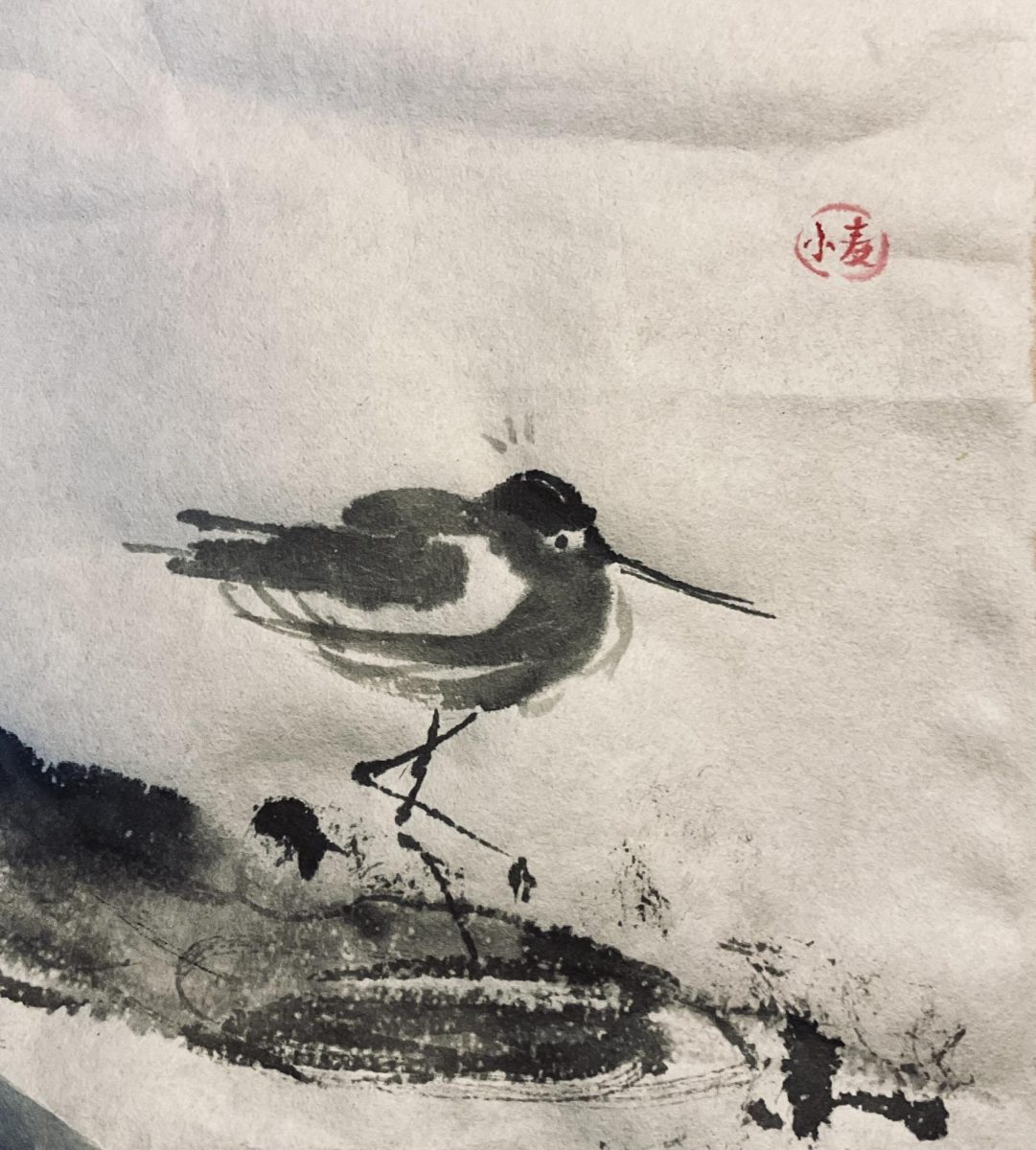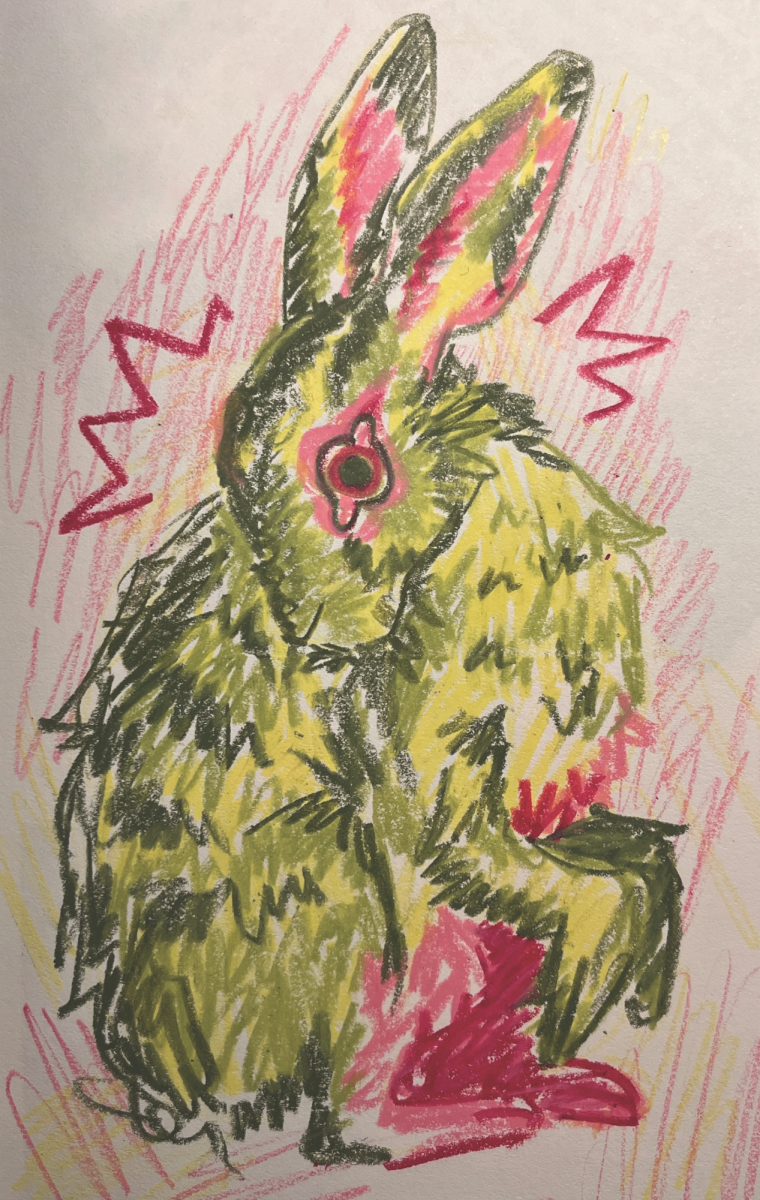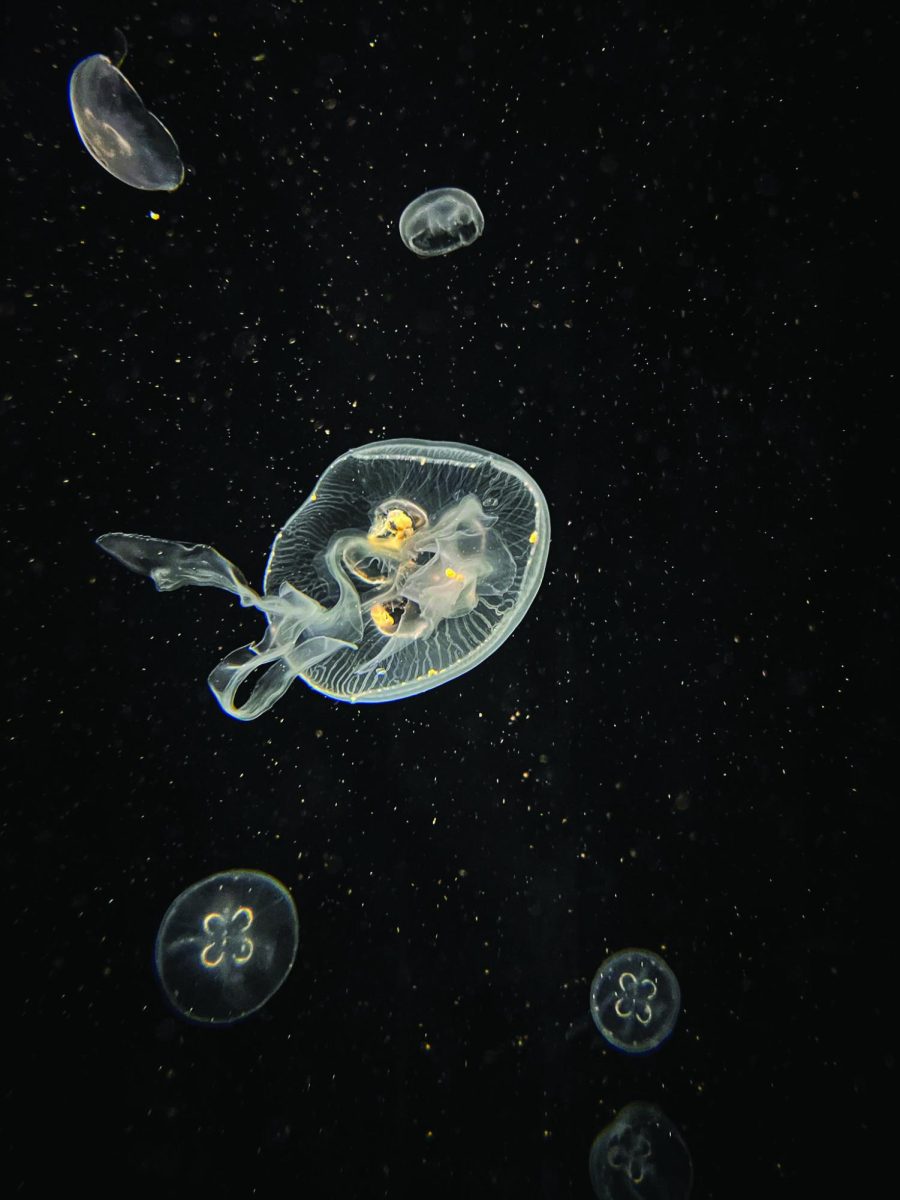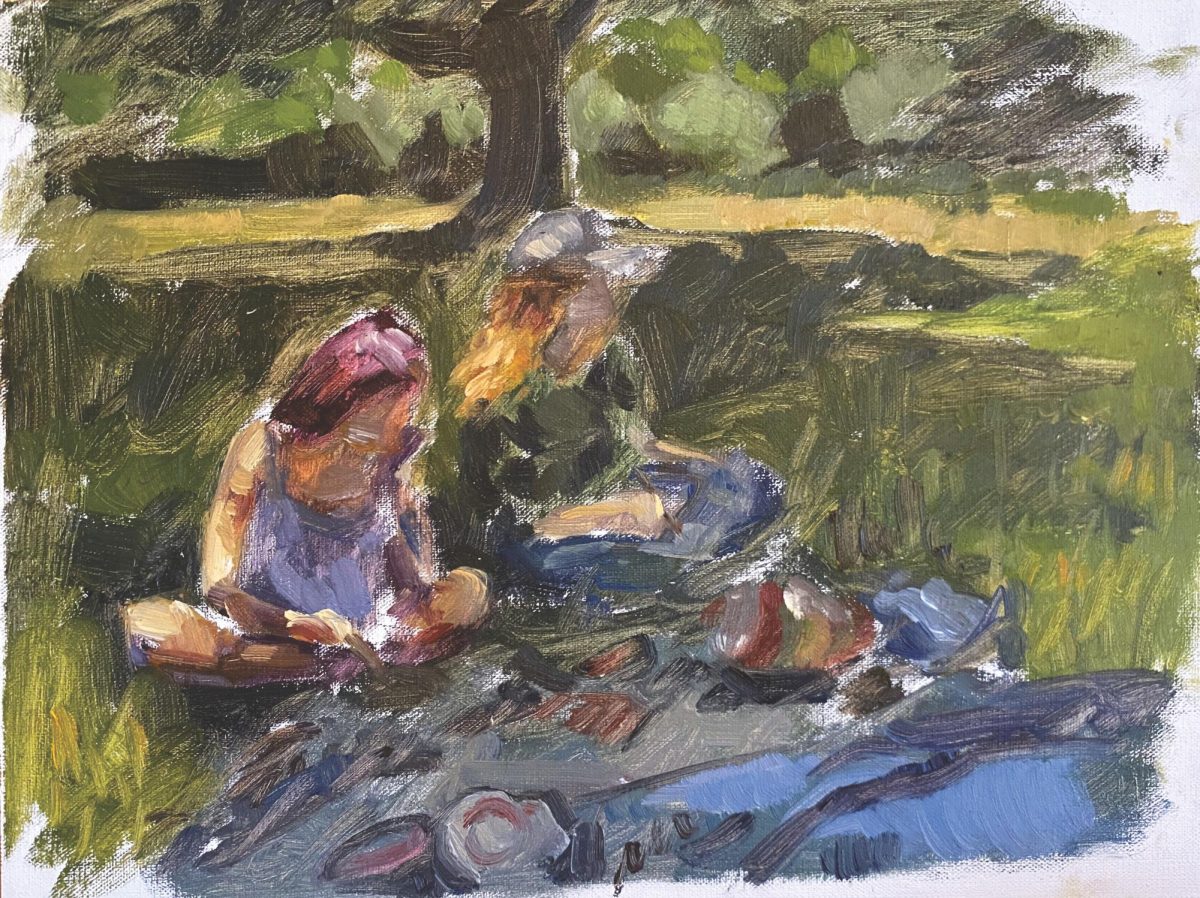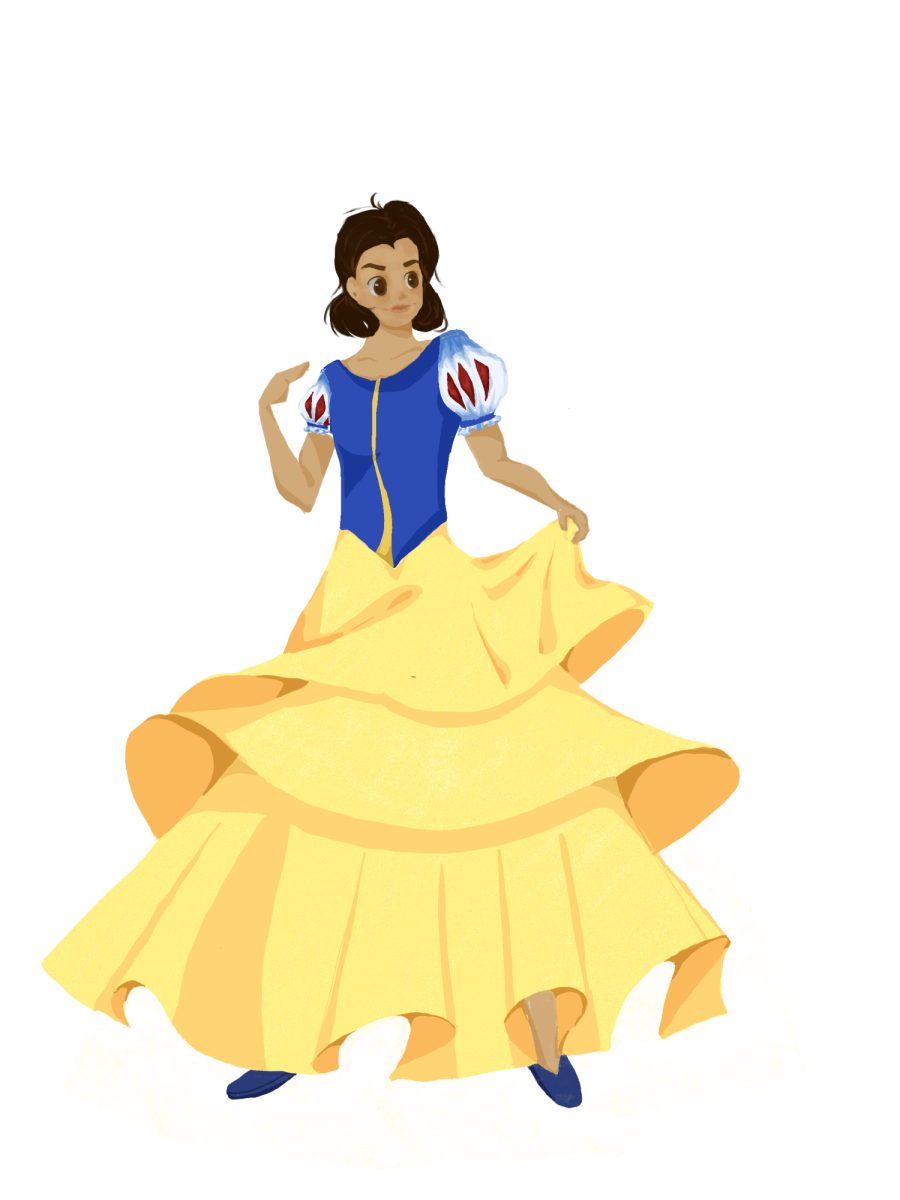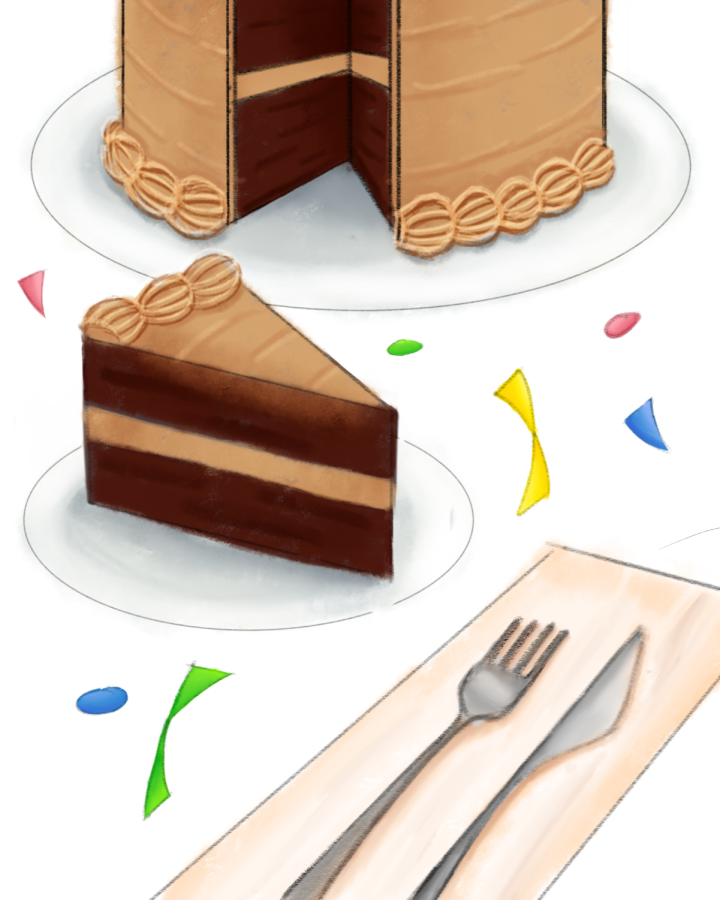Cutting Cake
Akhil Joondeph is a senior who is passionate about journalism and creative nonfiction. He is particularly interested in the ways in which writing can share stories of cultural history and tradition, in both the first and third person.
Cake is the classic celebration food. It’s sweet, decadent, visually impressive, and generally well-liked. It seems as if almost every family has some sort of “signature” cake, whether they purchase it at a bakery or are feeling more ambitious and bake it.
My family is of the former, and for most of my life, we had a standard cake, the closest dessert to perfection in our eyes — or rather, our bellies: chocolate cake with mocha cream cheese frosting from our beloved local bakery, the Prolific Oven.
Every birthday, anniversary, and milestone was accompanied by a slice of this cake. Whether it appeared as a cramped 4-inch cylinder, barely able to supply eight slices, or a vast sheet cake with the power to feed a whole room. The moist and decadent chocolate sponge layered with stripes of coffee-saturated cream cheese and decorated with spiked spirals of frosting worked its way into the lives of most of our friends and family members.
And so, when the bakery announced it would be shutting its doors forever two years ago, it should come as no surprise that we were all devastated. What else could possibly have the power to bring generations of Srinivasans and Joondephs together around the same crowded table?
Now, instead of the cake, we have our memories of eating it. The void previously filled by the actual taste of the cake was now filled with our fragmented recollections of its delectable flavors. The cake, during its lifetime, catalyzed moments that we reflect upon today in its absence. And today, we gather around the table and recall those beautiful moments together.
When I was 9, sugar began to be coined as a poison by leading dieticians. My father embraced this demonizing science and cut almost all sugar out of his diet. Being a family of only three, it was difficult for my mom and me to have a separate meal plan entirely, so we went along with his judgment and embraced an almost entirely sugar (and excitement) free life. However, when my father was not home, I could finally savor the poison that I enjoyed so much. It was the ultimate reward to successfully sneak a piece of leftover chocolate mocha cake from the freezer. The frosting would always be frozen solid, the sponge more like a brick, but the adrenaline rush of stealing such a treasured family treat and enjoying a virtually illegal substance in my household made the quest worthwhile every time.
When I was 10, my grandfather passed away — and I tried my hardest to convince myself otherwise. Compartmentalizing my sadness shut me down emotionally and I couldn’t properly grieve, not that day nor for a long time afterward. I remember very little from that day, except returning home with a knot in my stomach. I remember laughing at my mom, so emotionally confused that I did the opposite of what my body told me to do, maybe in a feeble attempt to remain happy or stay strong or uplift my family during a time of grief. And I remember the slices of cake eaten in silence, providing comfort that none of our words or actions could.
When I was 11, my parents celebrated 20 years of togetherness, a testament to the power of love and compromise. A table layered with multiple sheet cakes was the piece de resistance at their anniversary party. As decades of friends came together to celebrate a couple’s longevity, the cake that has lasted almost equally long within our family lore and celebrations, was there to celebrate alongside.
The comforting sourness of cream cheese frosting often greeted me after grueling dance performances, and the heavy, rich layers of chocolate sponge helped calm my nerves and put me to sleep the nights before my first days of middle and high school.
And even today, a chocolate mocha cake from 2019 sits, untouched, in my grandmother’s freezer.
None of us are sure when or why she bought it. But with the closing of the bakery, it has turned into an heirloom of sorts. Perhaps it remains there, not because we will ever eat it, but as a reminder of the power that this cake had over our lives. Not only is it nostalgic in a sense, it carries the weight of a thousand bags of tears and laughs. Maybe it’s so hard to take that bite and consume the last of this cake, probably from the world, because we are so attached to its existence. And so, from its icy abode, it continues to watch over us, in grief, in joy, and in celebration.




